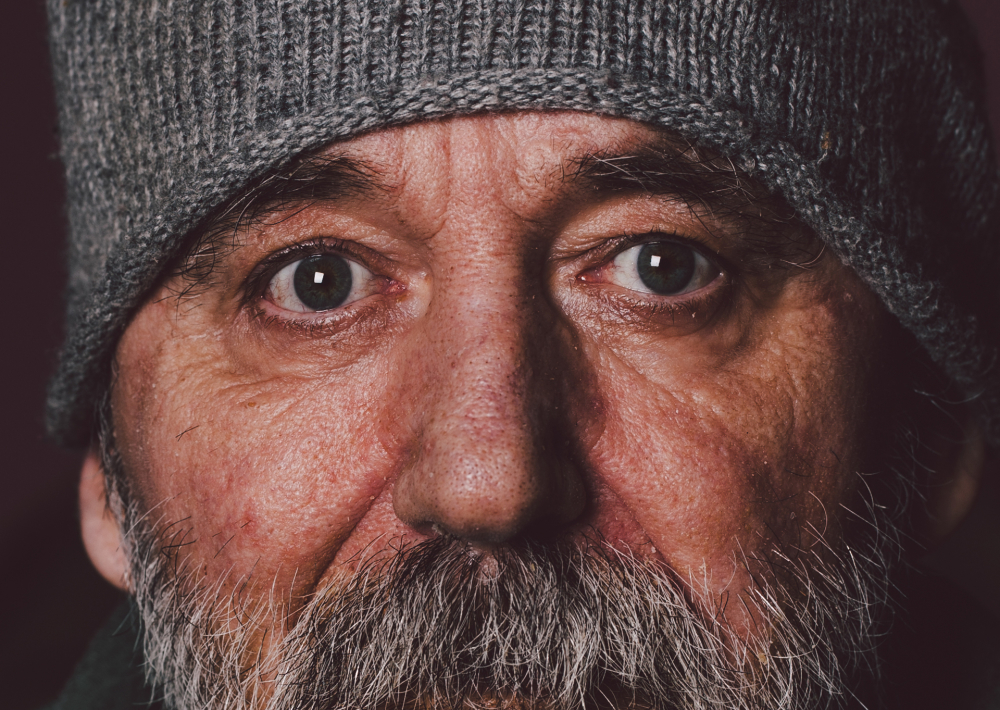The Shocking Truth of our Christmas Campaign
11 Dec 2017

Challenging ourselves is one of the most gratifying experiences we can go through - the possibility of learning something new and growing is one the strongest drivers in life. So when the opportunity to do something that scares me senseless arises, I say ‘yes’ before I even think. In retrospect, this may not be the safest strategy from an emotional point of view - and my last experience of ‘challenging myself’ attests to that.
Here’s a bit of background. For Lab’s new Christmas campaign, we wanted to do something that would make the world better somehow. Something that would remind people that by being kind to each other we can start a tidal wave of kindness.
So we decided to go out on the streets of Soho and approach people with a game - a coin toss which would indicate which one of two envelopes they would win. What the players wouldn’t know was that both envelopes had the exact same amount of money in it - they would win either way.
The true game was one they were oblivious to. We would split the participants into two groups with whom they would interact in polar opposite ways. With one group, we would talk about generosity, the transient nature of money and how sharing is a beautiful thing. And with the other group they would talk about selfishness, how money is hard to earn and sharing is not economically sane.
This is called priming. By making subtle suggestions, the concepts that we ‘plant’ into a person’s subconscious can directly impact their subsequent behaviour. You have probably seen it in shows, when magicians ‘guess’ what colour, number or word others are thinking about.
By suggesting either generous or selfish behaviour, we were priming our participants to feel either more or less inclined towards giving. What we wanted to show was that our own behaviour and attitude can influence those around us in a positive way - so we decided to see if our words could get people to give their recently won money to a homeless person just a few metres down the road.
The premise was simple, but the experiment didn’t quite go as expected. If at first my focus was on getting the experiment to go smoothly, as the minutes went by and I was feeling the cold wind and even colder expressions of the people walking by I realised I could no longer escape the reality of what I was feeling.
In our social experiment, I was playing the homeless person.
I was sitting down on the street, holding a sign and looking the part. A few days before the experiment, I started feeling more and more uncomfortable with the idea of pretending to be homeless. Knowing that it was for a good cause, I stiffened up and decided to go through with it - and on the day of filming, walking through Soho and moving from corner to corner, I realised that I was trying very hard not to shut down emotionally.
Despite being on the floor and holding a sign that said ‘bitterly cold’, I kept telling myself, “I know my worth. I know my worth.” But the truth is that as mentally strong as I was trying to remain, the reality of my situation hit me very hard. Just a few metres away from me were my co-workers, but they might as well have been on the other side of the world. The distance between us was now not physical, but social. Although I was just acting, the reactions that I got from unknowing passers-by were very real and hard-hitting; and I started to viscerally feel the reality of homelessness.
The world looks like a very different place when you are looking at it from the floor.
Most of the people pretended not to see me. They hurriedly walked by, engrossed in lives which were radically different from that of a homeless person. In those moments, I felt like I was watching life from the sidelines, as if I was paying the price of not being able to play by the rules of a game in which the odds were against me. I felt marginalised. I felt forlorn. But most of all, I felt dehumanised.
I had never been in a situation where people would refuse to acknowledge my existence. I had never felt like I was unworthy of attention. I never felt like I was not a part of society. A paria.
So being on the floor and feeling all of these feelings, my first instinct was to repress the hell out of them. I started controlling my breathing. I tried thinking about something else. I even tried meditating. But then I decided to do something emotionally irresponsible: fully immerse myself in the inescapable experience that I was living.
I started thinking about who I might have been, how I could have gotten in that situation. I started feeling the shame of being on the floor. The shame of not having money. The shame of being a failure. The shame of being everything a capitalist society condemns. The shame of being a complete and utter outsider. For a deeply social animal as the human, being isolated can feel like a true punishment.
In between locations, when my co-workers were talking to me and treating me as the human being that I almost forgot I was, I surprised myself with the feeling of a very intense relief. The relief of stepping back on the social playing field. But that wasn’t the only time I felt human again. When people approached me with caring looks, dropping a few coins into my cup and extended warm words towards me, I felt that although we were worlds apart socially, our humanity was what deeply connected us.
Qualities such as gratitude, warmth or kindness never seemed so important to cultivate as they did then - I felt like nothing could be more important in this world than being caring. Being kind. Considerate. Loving. Cutting through all the superficial layers of human interaction, from the pavement I had a clearer view than ever on what was essential: our very humanity. And then something that greatly impacted my life happened…
_____________
If you’re not angry, you’re not paying attention
I did the research.
And it made me both extremely sad and incredibly determined to do something about it.
There are more than 330.000 people in the UK sleeping on the cold pavement. One in every 200 people in the UK do not have a home, a family to turn to. One in 200. Last Christmas, more than 120.000 British children were homeless and in temporary accommodation.
In London, more than 8.000 people slept rough during 2015/16, the number more than doubled over the last five years, and nearly trebled over the last ten years.
But here is where the picture gets even darker.
Despite these staggering number of people desperately in need of support, there are 610.123 empty homes in England. Of these, 205.821 have been unoccupied for six months or more. Does this seem wrong to you as well?
There are 220 charities that specifically target homelessness in the UK. Shelter, Centrepoint, Crisis, Mt Mungo’s, the Pret foundation are all actively invested in helping homeless people.
Perhaps the most important point that has the power to influence institutions with influence is that preventing homelessness costs less than sweeping the problem under the rug and hoping it goes away. Considering the costs of healthcare, prison time and counselling, a single person sleeping rough in the UK for 12 months is estimated at £20,128. The cost of successful intervention is £1,426. The numbers speak for themselves.
But somehow, the problem keeps getting worse. Why?
Like many defavourised and poorly represented groups, the homeless are subjected to stereotypes and judgement. From a psychological perspective, we all have cognitive biases present in our mental processes - and these biases end up affecting the way in which we experience and see the world.
Here are a few of the biases that affect the issue of homelessness:
Stereotyping - we may think that all homeless people use alcohol and drugs, that they are lazy, don’t want to work or failed in life etc.;
Group attribution error - we may think that homeless people want or choose to be homeless, or that our experience with one homeless person is reflective of the whole group;
Ostrich effect - we may see homeless people all around us, but subconsciously (or consciously) refuse to acknowledge it.
We are only human, we all make mistakes - but our strength lies in seeing the ways in which we are mistaken and changing our ways. All the facts point in the same direction: Homelessness should absolutely not be an issue in a society as advanced as ours. Its prevalence is a societal failure.
_____________
Ultimately, I ended the day dirty and in tears. The last straw was when a very, very insensitive man tried to take my picture. When I refused to pose for him, he dropped a coin in my cup and put up his camera. Because I looked like I had no power. Because I looked like I needed the money. Because I was homeless, in his mind I didn’t seem to have the right to demand to be treated in any other way than how he wanted to treat me.
His behaviour only came as a confirmation of my biggest fear: that in other people’s mind, I had no intrinsic worth as an individual.
Shortly afterwards, I approached a man who had been sleeping on a bench nearby while we were filming. His name is Stuart. He knows Swedish and Italian, and he talked about the Piazza Navona with a melancholy that almost brought me to tears. He has met Paul McCartney and Morgan Freeman (yes, really!). He loves Shawshank Redemption just as much as I do. He, like me, is human. Isn’t that enough for us to be kind to each other?
I told Stuart about my experience that day, and how that man tried to turn my homelessness into an aesthetic. He looked into the distance and said, “People are horrible,” with a conviction that shook me to my core.
Things don’t need to be like this.
Indifference is not our natural state. Not caring, not helping, not treating others as humans should not be the norm. Let’s not normalise a behaviour that dehumanises others. In our behaviour, let’s promote kindness, understanding, caring - dare I say, unconditional love. Let our actions be a silent testimony to our humanity. Nothing, nothing is more important.

Please login to comment.
Comments